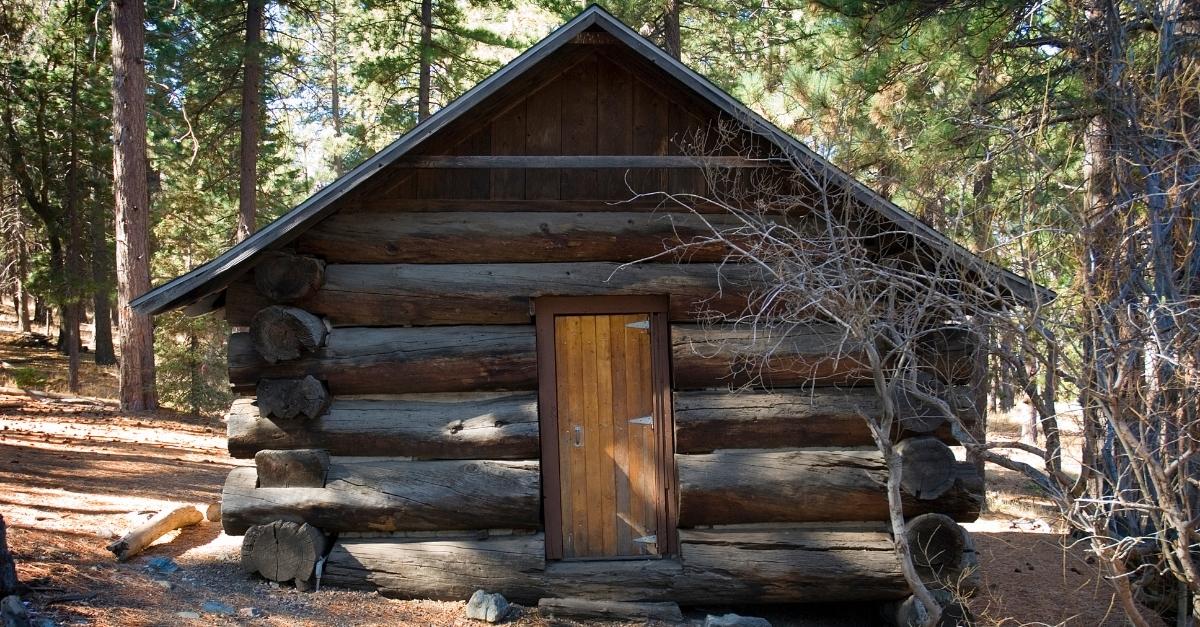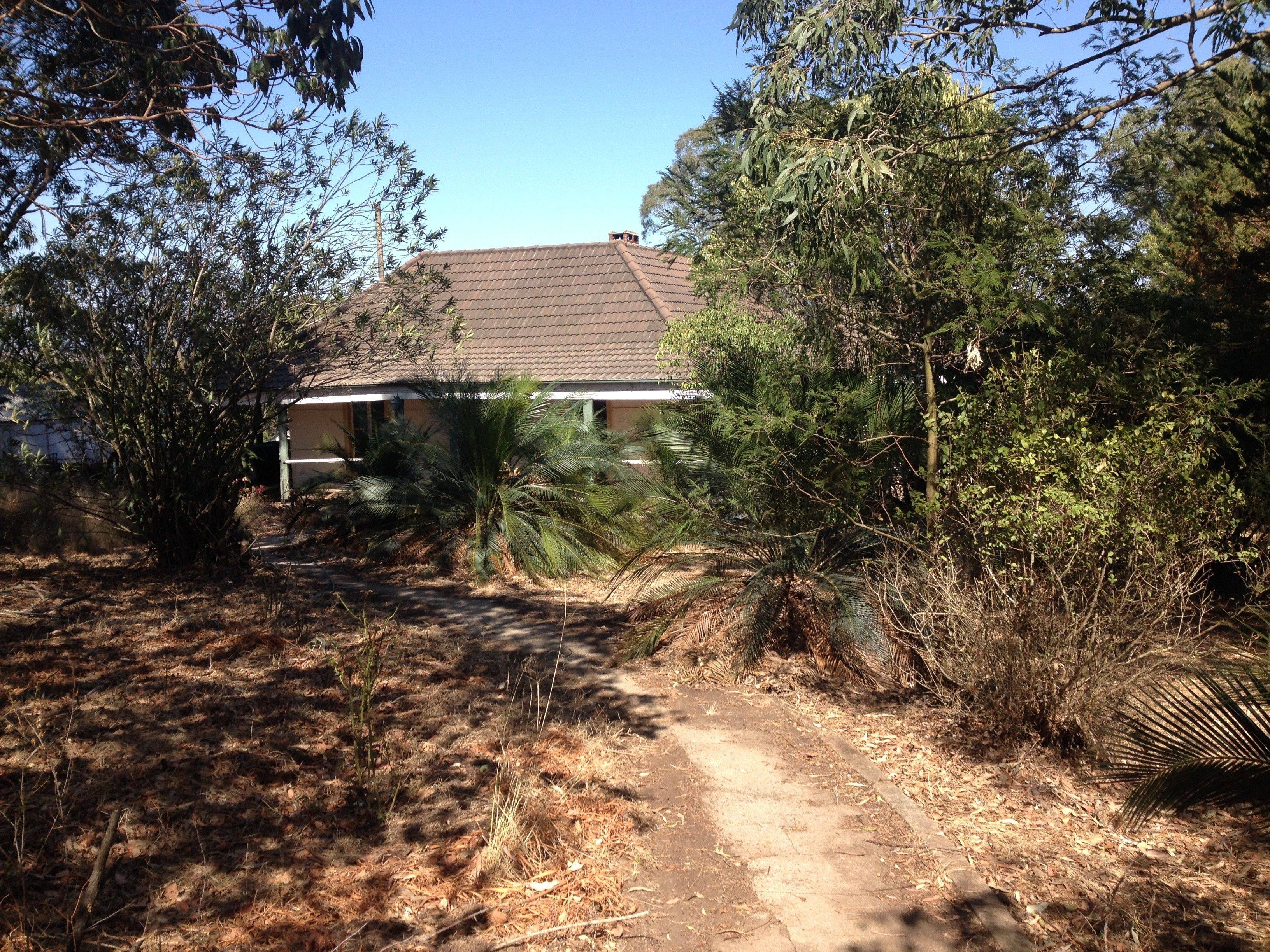Off grid living problems – Off-grid living problems extend far beyond romantic notions of self-sufficiency. While the allure of escaping the grid is strong, the reality involves significant financial hurdles, resource management challenges, and social adjustments. This article delves into the multifaceted complexities of this lifestyle choice, examining the practical, economic, and psychological considerations involved.
From securing initial capital for infrastructure to navigating the intricacies of renewable energy and waste disposal, the transition to off-grid living demands meticulous planning and adaptability. Furthermore, the social isolation and potential technological limitations inherent in remote living require careful consideration. This exploration aims to provide a balanced perspective, highlighting both the potential rewards and the substantial challenges involved.
Financial Challenges of Off-Grid Living
Embracing off-grid living presents a compelling vision of self-sufficiency and environmental consciousness. However, this idyllic picture often obscures the significant financial hurdles involved in making the transition and maintaining this lifestyle. Prospective off-grid homesteaders must carefully consider the substantial upfront costs and ongoing expenses before taking the leap. A realistic assessment of these financial implications is crucial for avoiding future hardship.
Initial Capital Investment
Establishing a functional off-grid system requires a substantial initial investment. The exact cost varies widely depending on location, the desired level of self-sufficiency, and the scale of the project. A basic system might include solar panels, batteries, a water collection and purification system, and a backup generator. More ambitious projects might incorporate wind turbines, a well, and extensive food production infrastructure.
Consider a hypothetical example: a family aiming for moderate off-grid living in a rural area might face initial costs ranging from $30,000 to $100,000, depending on the chosen technologies and the extent of pre-existing infrastructure. This includes land acquisition, building construction or renovation, and the purchase and installation of essential off-grid systems.
Ongoing Maintenance Costs
The financial commitment doesn’t end with the initial setup. Off-grid living necessitates regular maintenance and occasional repairs or replacements of equipment. Solar panels degrade over time, batteries need periodic replacement, and generators require routine servicing. Water filtration systems may need filter changes or repairs, and other equipment, such as pumps or tools, might require occasional maintenance or replacement.
Finish your research with information from off grid living in va.
These costs can range from several hundred to several thousand dollars annually, depending on the complexity of the system and unforeseen repairs. For instance, a failed battery bank could easily cost several thousand dollars to replace.
Long-Term Financial Implications
Comparing the long-term financial implications of off-grid versus traditional living is complex. While off-grid living eliminates utility bills, it introduces other expenses, such as equipment maintenance and potential fuel costs for backup generators. Traditional living, on the other hand, offers predictable utility costs but lacks the potential for reduced food expenses or income generation through self-sufficiency. A detailed cost-benefit analysis, considering factors such as property taxes, insurance, and potential income generation from homesteading, is essential.
In some cases, off-grid living might offer long-term savings, particularly for those in remote areas with high utility costs. However, unexpected repairs or equipment failures could significantly impact the overall budget.
Budget Template for Off-Grid Homesteaders
A well-structured budget is crucial for successful off-grid living. The following template provides a starting point, but individual needs will vary considerably.
| Category | Monthly Estimate | Annual Estimate |
|---|---|---|
| Initial System Setup | – | $30,000 – $100,000 (one-time) |
| Equipment Maintenance & Repairs | $250 | $3000 |
| Fuel (Backup Generator) | $50 | $600 |
| Food Production Supplies (seeds, fertilizer, etc.) | $100 | $1200 |
| Property Taxes & Insurance | $200 | $2400 |
| Miscellaneous Expenses | $100 | $1200 |
| Total Monthly | $700 | |
| Total Annual (excluding initial setup) | $8400 |
Note: This is a sample budget and actual costs will vary significantly based on location, lifestyle, and system complexity. A thorough assessment of individual needs and circumstances is crucial before committing to off-grid living.
Social and Psychological Aspects of Off-Grid Living
The allure of self-sufficiency and a simpler life often draws individuals to off-grid living. However, the transition away from mainstream society presents unique social and psychological challenges and benefits that must be carefully considered. The degree of isolation, the changes in social interaction, and the impact on mental well-being are all significant factors influencing the overall experience.The shift to an off-grid lifestyle involves a significant alteration in social structures and daily routines, potentially leading to both positive and negative consequences for mental and emotional health.
While some thrive in the independence and tranquility, others struggle with the lack of regular social interaction and the absence of readily available support systems.
Social Isolation Experienced by Off-Grid Dwellers
Many off-grid individuals report feelings of loneliness and isolation, particularly in remote locations. A case study of a family in rural Montana, documented by the University of Montana’s Rural Studies program, revealed the challenges faced by parents who found it difficult to maintain social connections with friends and family due to limited access to transportation and communication. The children, while enjoying the natural environment, lacked the peer interaction typical of traditional schooling.
Another example involves a couple who relocated to a remote cabin in the Appalachian Mountains. While initially excited, they eventually felt overwhelmed by the lack of spontaneous social interaction, the limited opportunities for casual encounters, and the difficulty in maintaining close relationships with friends and family living in urban areas. Their experience highlighted the importance of proactive measures to combat social isolation.
Psychological Benefits and Drawbacks of Disconnected Living, Off grid living problems
The psychological impact of off-grid living is complex and highly individual. While some experience a reduction in stress and anxiety associated with the fast-paced nature of modern life, others struggle with the increased responsibility and the potential for feelings of isolation and helplessness. The absence of constant stimulation and the demands of self-sufficiency can lead to both heightened self-reliance and a sense of overwhelming pressure.
Studies suggest that individuals with pre-existing mental health conditions may find the transition more challenging. Conversely, for those who thrive on independence and find fulfillment in hands-on work, off-grid living can foster a sense of purpose and self-efficacy. The quietude and connection with nature can be incredibly restorative for some.
Community Dynamics in Off-Grid Communities
Off-grid communities often exhibit a unique social dynamic compared to traditional neighborhoods. While geographically dispersed, these communities often rely on mutual support and cooperation, fostering a strong sense of interdependence. However, the lack of formal governance and established social structures can also lead to conflicts and challenges in maintaining harmony. A comparison of a well-established off-grid community in Oregon, known for its collaborative spirit and shared resources, with a more recently formed community in Idaho, which experienced internal disagreements over resource allocation, illustrates the diverse nature of off-grid social structures.
The success of off-grid communities often depends on shared values, effective communication, and a commitment to mutual respect.
Strategies for Maintaining Social Connections While Living Off-Grid
Maintaining social connections while living off-grid requires proactive effort. Regular communication with family and friends via phone, email, or video conferencing is crucial. Participating in online communities dedicated to off-grid living can provide a sense of belonging and access to advice and support. Attending local gatherings or events, even if infrequent, can provide opportunities for social interaction.
Cultivating relationships with neighbors or other off-grid dwellers in the vicinity can foster a sense of community and mutual support. Finally, scheduling regular visits with loved ones, even if it requires travel, is essential for maintaining strong social bonds.
Safety and Security Concerns in Off-Grid Living: Off Grid Living Problems

The allure of self-sufficiency and a life disconnected from the grid is undeniable, but off-grid living presents unique safety and security challenges. Remote locations, reliance on self-provided resources, and limited access to emergency services necessitate a proactive approach to risk mitigation. Understanding and addressing these concerns is crucial for ensuring the well-being and safety of off-grid inhabitants.
Exposure to the Elements and Wildlife Encounters
Off-grid living inherently exposes individuals to the unpredictable forces of nature. Extreme weather events, such as blizzards, heatwaves, and floods, pose significant threats. Homesteaders must be prepared for power outages, disruptions to water supplies, and potential structural damage. Furthermore, the proximity to wildlife, ranging from insects to large predators, necessitates careful planning and preventative measures. For example, a homesteader in a bear-prone area must implement bear-resistant food storage and maintain a safe distance from wildlife.
Failure to adequately address these risks can lead to serious injury or even death.
Safety Precautions and Emergency Preparedness Measures
Comprehensive emergency preparedness is paramount for off-grid living. This involves developing a detailed plan encompassing various scenarios, including medical emergencies, natural disasters, and security breaches. A well-stocked first-aid kit, including medications and essential supplies, is crucial. Access to clean water is vital, potentially requiring rainwater harvesting systems or water purification methods. Communication systems, such as satellite phones or two-way radios, are essential for contacting emergency services in remote areas.
Regular maintenance of essential equipment, such as generators and water pumps, is critical to prevent system failures during emergencies. Furthermore, fire safety protocols, including the installation of smoke detectors and fire extinguishers, are essential due to the increased reliance on wood-burning stoves or other alternative heating methods. Regular fire drills can help ensure everyone in the homestead is prepared for such events.
Security Measures for Isolated Off-Grid Locations
Security in isolated off-grid locations requires a multi-faceted approach. Perimeter security, such as fencing or strategically placed lighting, can deter intruders. Surveillance systems, incorporating cameras and motion detectors, provide an added layer of protection and allow for remote monitoring. Strong, well-secured doors and windows are essential, as are alarm systems that can alert residents or emergency services to potential breaches.
Personal security measures, such as self-defense training and awareness of surroundings, are also crucial. Establishing strong relationships with neighbors or nearby communities can provide a support network and enhance security through mutual assistance. A well-lit perimeter, coupled with strategically placed security cameras, can greatly improve the sense of security and deter potential intruders.
Essential Safety and Security Equipment Checklist
Prioritizing safety and security necessitates a comprehensive inventory of essential equipment. This includes, but is not limited to: a well-stocked first-aid kit, a reliable communication system (satellite phone or two-way radio), a generator with ample fuel supply, water purification tablets or a filter, a fire extinguisher, smoke detectors, tools for home repairs, bear spray (if applicable), a comprehensive emergency plan, and personal security items (such as pepper spray or a personal alarm).
Regular maintenance and testing of this equipment is crucial to ensure its effectiveness in an emergency. The specific items on this list will naturally vary depending on the location and the specific risks associated with that location.
Embracing off-grid living requires a realistic assessment of the inherent challenges. While the promise of self-sufficiency and connection with nature is alluring, prospective homesteaders must carefully weigh the financial, logistical, social, and environmental implications. Thorough planning, resourcefulness, and a strong support network are crucial for successfully navigating the complexities and realizing the potential benefits of this unique lifestyle.
Ultimately, a well-informed approach is key to mitigating risks and maximizing the rewards of off-grid living.



